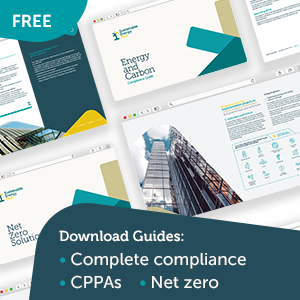The rollout of smart meters across the UK has floundered badly, with early ambitions to have completed this year now dead in the water. If yours is one of the thousands of organisations that are still using manual metering, you are still shooting in the dark when it comes to your energy efficiency efforts.
What went wrong?
The Government has now pushed back the deadline for its £13 billion smart energy meter rollout from 2020 to 2024. The move came after a damning report from the National Audit Office, labelling the switch a ‘fiasco’ with just 15 million smart and advanced meters installed as of June 2019, out of an initial target of 53 million.
Just 15 million smart and advanced meters installed as of June 2019, out of an initial target of 53 million.
The deferral is intended to give energy suppliers time to resolve the technical issues that have dogged the project throughout. When factoring in problems with smart meters alongside the deficit still to be installed, the issues become even more stark. A study from uSwitch found that more than a third of households that had a smart meter installed had reported experiencing problems, including displays failing, being unable to cope with switching energy provider or ceasing functioning entirely.
Why smart meters still matter
Smart Energy GB, the government-backed campaign set up to spearhead the rollout of smart meters, has continued to highlight the economic benefits if suppliers can get their houses in order. 85% of bill payers that have received a smart meter reporting that it allowed them to find new ways to reduce their energy consumption. Analysis from BEIS puts the net economic benefit to customers at just short of £20 billion, even factoring in the longer time period.
85% of bill payers that have received a smart meter reporting that it allowed them to find new ways to reduce their energy consumption.
Automatic Meter Reading (AMR) allows for consumption, diagnostic and status data to be collected automatically, transferring that information to a central database for billing, troubleshooting and analysis. When working correctly, it offers savings in terms of both overall costs and man hours. As well as preventing the need for manual meter readings to be submitted, they also play a vital role in energy efficiency strategies.
Data is key
Monthly billing from an old-fashioned, manual meter, with no other data available on how and when you are consuming energy, is the worst position to be in when it comes to attempting to address your sustainability, costs and consumption.
Simply put, you can’t fix something if you don’t know its broken.
Better oversight of the energy you actually use and the associated costs empowers your organisation with the ability to act on these insights. Without AMR, it is difficult to identify what may be simple changes that provide tangible impact on your energy consumption and costs, such as changes in staff behaviour. Similarly, it makes the impact of any energy efficiency measures you do employ difficult to quantify when you do not have access to real-time data that can demonstrate the change.
Alongside better oversight and understanding of your patterns of energy use, AMR also allows for near real-time data when calculating billing, ending estimated billing based on previous or predicted usage, ensuring you are only paying for the energy that you actually use.
The first step you should be taking is to ensure that all your metering has been updated to the newest, SMETS2 meters, allowing for both AMR and inbuilt functionality that makes switching between energy providers simple without losing ‘smart’ functionality. If this isn’t the case, speak to either your energy provider or energy consultancy to facilitate the transition, which should be at no cost to you. Despite a choppy rollout, properly implemented smart meters will become an important part of your wider energy strategy, whether your ultimate goal is to save money, reduce usage and emissions, or a combination of the two.
Even if you have been upgraded to the newest generation of smart meters, it could be that you are not making the most of the wealth of data they can provide. Use the advice and knowledge available to you to ensure that your energy strategy is making the most of the data you do have to hand, shaping your buying decisions and usage to secure cost reductions and lowering your carbon footprint.







